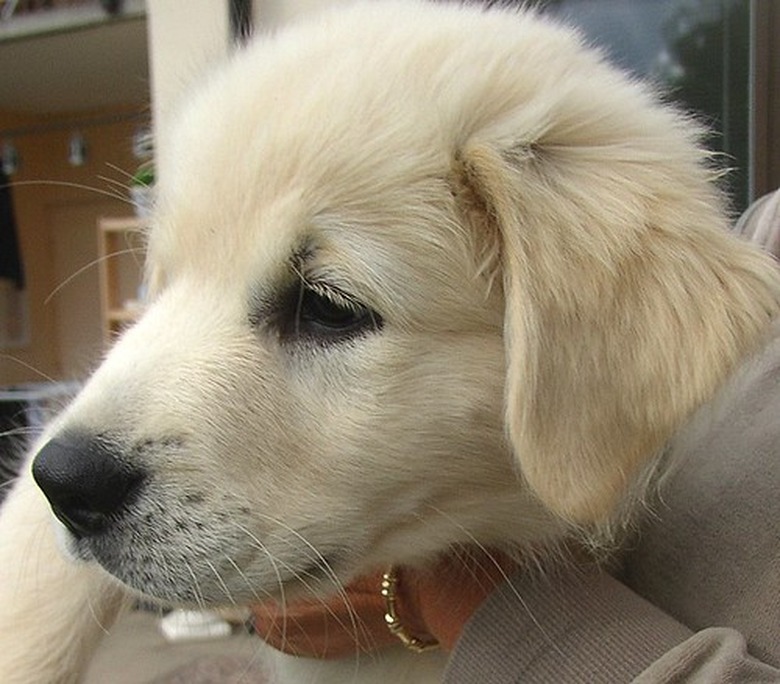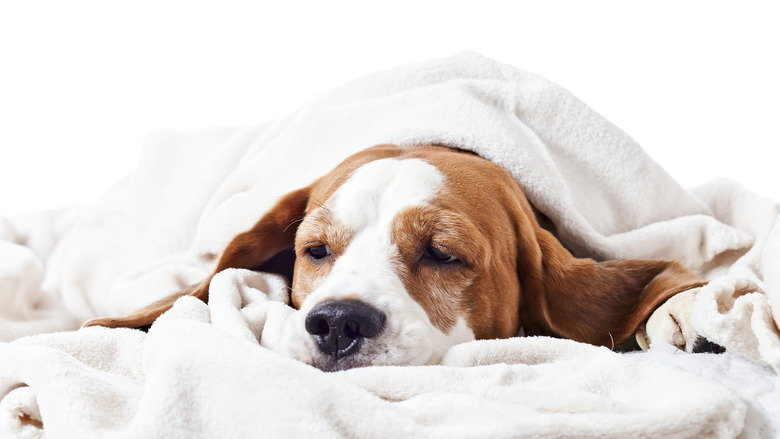Loss Of Appetite & Diarrhea In Dogs
Anytime a dog refuses food and also has diarrhea it can be cause for alarm. Most dogs love to eat, and when some refuse their normal meal and then develop diarrhea, chances are something is going on with their intestines. Any loss of appetite in dogs can be a warning sign of larger issues, but not always.
Nevertheless, it is prudent to have your dog examined by a veterinarian if your dog won't eat for longer than a day or two. Loss of appetite and diarrhea are common reasons veterinarians see puppies and dogs because either can be a symptom of colitis, parasites, infection, and more.
Causes of loss of appetite and diarrhea in dogs
Causes of loss of appetite and diarrhea in dogs
One cause of loss of appetite and diarrhea — a stream of watery feces — is a sudden change in the dog's food; switching foods should be done gradually over a seven-day span. This cause is easiest to fix by transitioning to a new food slowly and monitoring the results. However, there are more concerning causes of no appetite and diarrhea such as canine colitis, which is inflammation of the colon. If this is the case, your dog must see a vet and will likely need a prescribed antibiotic to help cure the condition.
Other causes of loss of appetite and diarrhea in dogs are parasites, toxicities, underlying metabolic conditions, and more serious illnesses, such as parvo, systemic infection, or certain cancers. Puppies especially tend to eat things they should not, which in turn can cause an upset stomach and lead to diarrhea and/or vomiting. Monitor a puppy carefully. If the offending item is small and can pass through the stool, the puppy will likely be ok.
However, if the item creates a blockage, the dog will need medical attention and possibly surgery. An x-ray might reveal a blockage, but sometimes advanced imaging such as an abdominal ultrasound is necessary before a pet receives emergency surgery.
Concerns about no appetite and diarrhea
Concerns about no appetite and diarrhea
No appetite and diarrhea are usually not cause for immediate concern if the situation lasts for one day or less. Dogs, like people, can feel a bit under the weather. However, longer periods are an issue likely requiring medical tests to determine the cause. If your dog's diarrhea persists for more than 24 hours for any reason, the dog should see a veterinarian. The chance of dehydration after this period is likely.
Even for short durations, diarrhea can severely dehydrate a dog. If it persists for more than 24 hours for any reason, the dog should see a veterinarian. Note that the smaller the dog, the faster he will dehydrate. Clearly, a Shih Tzu will dehydrate faster than a German shepherd, especially if the diarrhea is severe.
Considerations when treating dog diarrhea
Considerations when treating dog diarrhea
For mild cases of diarrhea, try adding canned pumpkin to your dog's food. Pumpkin is rich in fiber and vitamin A, E, and C. To avoid issues when changing foods, try adding a tablespoon of plain canned pumpkin to the new food. Pumpkin helps with both diarrhea and constipation in dogs. Canned pumpkin is a better option than fresh pumpkin because it has a higher concentration of fiber and nutrients. Note that canned pumpkin pie filler has too many spices, sugars, and sometimes xylitol, which is toxic for dogs.
If the problem lasts longer than one day or isn't solved with the addition of pumpkin to your dog's food, visit the veterinarian. After conducting a thorough exam, including a review of your dog's health history, a veterinarian can determine if diagnostics tests will be needed, or if symptomatic treatment is required. Sometimes simply a special diet will correct diarrhea in dogs and stimulate appetite.


